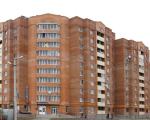How to evict a person from an apartment
The article deals with the issues of vacating housing by citizens. It also contains a list of grounds for forcibly evicting a person from an apartment. Exceptional provisions are indicated according to which a person cannot lose the right to use housing.
Housing law is the main social regulator of society, which is controlled by the state through the Constitution, Housing, Civil, Family and Criminal Codes.
ATTENTION!!!
For residents MOSCOW available FREE consultations in office rendered by professional lawyers on the basis of Federal Law No. 324 "On Free Legal Aid in the Russian Federation" .
Don't wait - make an appointment or ask a question online.
Housing law is also displayed internationally. guarantees that no citizen can experience willful encroachment on the inviolability of the home.
The state ensures citizens the freedom to acquire and a stable position in the use and possession of housing, as well as the avoidance of forcible seizure of housing.
Forced release of premises from citizens is provided for by law.
Deprivation of housing from a legal point of view
Infringement of the rights provided for by the constitution to housing is possible only according to the norms established by the provisions of housing and federal legislation. The process for vacating a home depends on the status of the property.
The housing fund is determined by types of ownership and is administered by:
- citizens or legal entities,
- states,
- municipality.
Claims to vacate the dwelling are made only by the owner.
Foundations
The circumstances of the loss of the right to housing are considered in Art. 31, 35, 84, 85, 90, 91, 101, 103, 133 of the Housing Code.
The process of vacating housing is established on enforcement proceedings.
Termination of a social contract of employment at the initiative of the landlord by a court decision:
| The room is crumbling | and is on the building's liquidation schedule. |
| Transfer to the fund | not for living. |
| As a result of the renovation, the living space of the premises has decreased | which does not meet health standards. |
| Citizens do not pay utility bills | more than 6 months. |
| The person caused significant damage to the premises. | Support structures destroyed. |
| A person regularly does not comply with the provisions of the social hostel | and violate the interests of other persons living in the neighborhood. |
| The tenant sublet the premises | without the consent of the landlord. |
| Person deprived of rights to a child | which is illegal living in the same room with children. |
Important Rules
The release of housing is carried out voluntarily or involuntarily in accordance with a court decision. Before receiving a court decision to deprive the right to housing, there is a stage of registration and submission of an application to the court.
Forced vacating of premises occurs in relation to persons who voluntarily did not vacate the premises.
The forced vacation of a dwelling, issued under a social tenancy agreement, is established in Art. 84-91 of the Civil Code and may occur:
- with the allocation of improved housing;
- with the allocation of ordinary premises according to the norms of the law;
- without allocation of another dwelling. With eviction to the street or maneuverable fund.
Forced vacation of the dwelling is a protective measure of the rights of the landlord. If the premises are contrary to sanitary standards - a protective measure of the rights of the tenant.
Special cases of the need for an extract
There are individual grounds for deregistration, which are established by law:
Special situations include, for example, vacating premises in a cooperative.
The condition for the release of the premises is the non-payment of the share contribution in full, . This article regulates that a person is excluded from the membership of a cooperative. Then the citizen and his family lose the right to housing and must release him within 2 months.
If a person with a family does not vacate the dwelling voluntarily, then it is necessary to apply to the court to obtain a court decision on the loss of such a right.
Living in cooperative premises is based on membership. The right to use housing terminates with the loss of a member of the cooperative society.
Another reason to terminate the right of possession is the rule that establishes that the owner has the right to demand property from another possession received by other persons in violation of the law.
The practice in the courts shows that the loss of ownership is connected with the recognition of the invalidity of the transaction, and then the consequences of the invalidity of any documents follow.
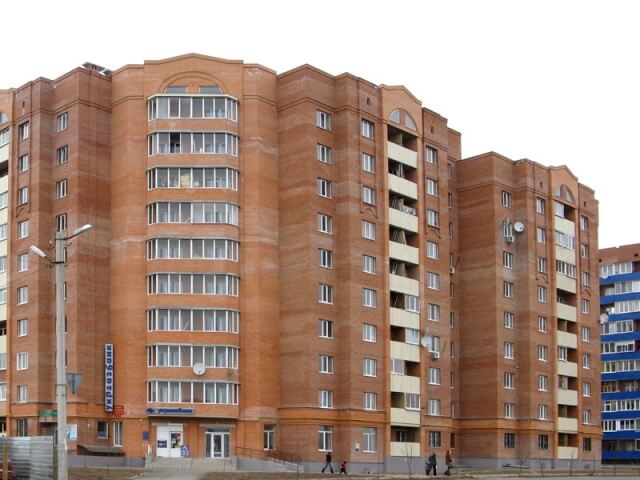 There are many cases of termination of cohabitation. The Civil Code () gives the homeowner the right to demand the elimination of any encroachment on his property, in the event that it does not intersect with the loss of possession.
There are many cases of termination of cohabitation. The Civil Code () gives the homeowner the right to demand the elimination of any encroachment on his property, in the event that it does not intersect with the loss of possession.
But in order to deprive a person of the right to housing, strong evidence is needed, confirmed by official bodies, and in compliance with the law. In any case, if the tenant did not vacate the premises voluntarily, he can be evicted by court.
If there is no other accommodation
The law protects the housing rights of citizens. The Code of Procedure () establishes that it is impossible to vacate the premises if the person does not have another home.
An exception is mortgaged housing. In this case, the borrower's lack of other living space is not a basis for further residence in the apartment.
From mortgage property
The imposition of an appeal on housing under obligations for collection, as well as the release of its owner, is interconnected with mortgages.
The condition for the emergence of obligations under the mortgage is an agreement that is concluded between the borrower and the bank.
If a person has not returned the mortgage loan, then the premises are withdrawn by the bank and sold at public auction.
The court, at the request of the bank, terminates the right to own housing and it is subject to seizure from the debtor. The presence of minor children and the absence of other habitable premises does not matter.
A very important point to which you need to pay attention. The release of housing is carried out only by bailiffs on the basis of a court decision. The bank and collection firms are not authorized to deal with the release of the home.
From the practice of the courts, it can be said that the courts, when considering cases, attach importance to the circumstances:
- the occurrence of delay due to the loss of permanent earnings;
- diseases;
- loss of legal capacity;
- other reasons that exclude malicious actions.
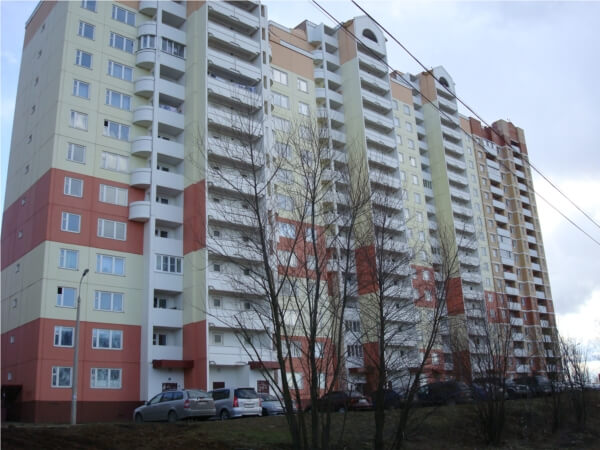 Living quarters in a communal apartment came from the post-Soviet space and are typical dwellings in which more than one family lives.
Living quarters in a communal apartment came from the post-Soviet space and are typical dwellings in which more than one family lives.
The process of vacating such apartments determines their legal status, i.e., the dwelling is under the jurisdiction of the state, municipality or department, or this apartment is in private ownership.
You can evict the owner from the room if he:
By analogy, the grounds apply if persons are evicted from a rented dwelling.
Statement upon change of ownership
Another reason for deregistration is the loss of ownership of a dwelling in accordance with.
The owner of the living space has the right to deprive the use of the dwelling and deregister the residence registration of the old owner, because this limits the rights of the new owner.
A separate case is the absence of the old owner of another home and the ability to buy or rent it soon. In this situation, the court may, for a period of up to 1 year, allow living in the premises.
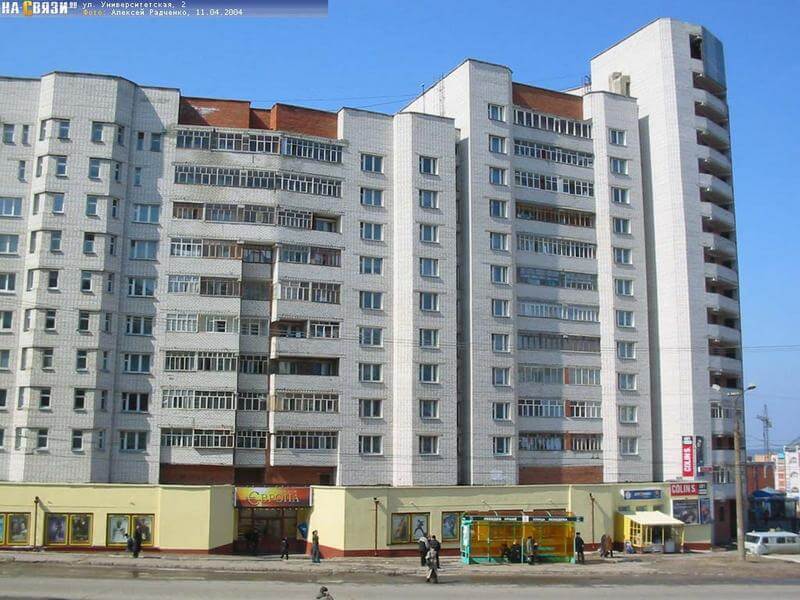 The legal status of housing affects the circumstances and reasons for deregistration of the registration of family members.
The legal status of housing affects the circumstances and reasons for deregistration of the registration of family members.
If former family members or relatives are the owners of the dwelling, then it should be recognized that they have lost the right to own it.
A serious provision that does not allow deregistration of a family member is spelled out in Art. 292 of the Civil Code of the Russian Federation, which allows a family member who did not voluntarily take part in privatization to live for life.
If the spouses, as a result of the dissolution of the marriage, are not family members and owners of housing, then they lose the right to use the housing and are subject to deregistration of the registration of registration. If spouses live in a municipality apartment, they have similar rights to use housing and it is impossible to deprive registration of registration of registration.
The exception is antisocial behavior, lack of work, drinking, brawls.
It should be noted that the owner of the home can deal with the issues of deregistration of the registration of registration, for example, to vacate the home from the granddaughter with children from the apartment, it is possible only when you are the owner of the home.
When marital relations are terminated, not only the husband or wife loses the right to reside, but also their relatives.
If a person does not have a registration of registration, it is possible to vacate the premises, for example, from a sister, only by a court decision.
In exceptional cases, for example, the presence of a child, the court, by its decision, imposes an obligation on the spouse to buy or rent an apartment for the other spouse.
It is impossible to deregister registration by registration from the home of one child for any reason. To remove the registration of registration of a person under the age of 18, it is necessary to file a claim against the father or mother.
From office living space
The housing law () classifies housing for official purposes as special-purpose housing. Such property, in accordance with Art. , LCD is allocated to persons for use for a while.
The condition for extradition is a social contract of employment. With compulsion to vacate the office space, it is possible only when the employment contract is terminated.
The contract is valid for the entire period of work of a person at the enterprise that provided him with a living space, but there are special cases of termination:
Other cases:
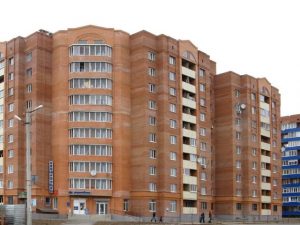 Many people think that the motive for deregistration of a person's registration is to bring him to criminal liability. Apparently, this opinion is justified by the fact that convicted citizens are removed from registration and registered in places of detention.
Many people think that the motive for deregistration of a person's registration is to bring him to criminal liability. Apparently, this opinion is justified by the fact that convicted citizens are removed from registration and registered in places of detention.
Deregistration of the registration of registration of persons who have been sentenced to imprisonment in places of deprivation of liberty by a court verdict is carried out in accordance with the verdict of the court.
The administration of the pre-trial detention center in which they are located provides the FMS with certificates of convicted persons. The Federal Migration Service puts down data about this in the passport. Identity cards are returned and attached to the materials of the criminal case.
But such deregistration is temporary, and upon return, the convicted person is registered at the former address. His being in places of detention does not affect his right to own a dwelling. A special case is the confiscation of the property of the convict.
The convict has similar housing rights with other citizens. If they refuse to register him at his former address, he has reason to apply to the judicial authorities for the protection of his violated rights.
It is possible to release housing from its presence, but for other reasons. For example, debt for utilities or violation of the interests of neighbors.
Rowdy for noise or alcoholic
It is possible to free a dwelling from a brawler and a drunkard who violates the interests of people living in the neighborhood. But this requires confirmation of the systematic nature of antisocial behavior.
Preventive measures were taken against him, but they did not give a result.
Single situations of disturbance of peace and silence are not the motive for vacating housing. Such behavior can have a systematic character if the rules of conduct are violated at least two times.
Loss of the right to use a dwelling for antisocial behavior is an extreme method of punishment and can be imposed when preventive measures have not worked.
Legislatively, there is no official form of warning.
Prevention measures are a preliminary stage in the consideration of the housing issue. These measures serve as evidence and without them the dispute will not be considered in court.
In order to obtain a positive court decision, it is necessary to prove the fact that it is impossible to live with such a person. And this is very difficult.
Only the guilty persons vacate the premises, but not the family. If the main tenant is evicted, then any member of the family is established as the tenant.
Who can't be deprived of a roof over their heads?
Sometimes the release of a home takes place in the fire of family scandals. Personal belongings are thrown away, door locks are changed, or door keys are taken. Such actions are illegal. A person who has suffered from such actions has the right to file a lawsuit in court for the restoration of the rights that have been violated and to move him into a dwelling.
If he is registered in the dwelling, the court satisfies his application. Similar in meaning may be a lease agreement between the parties. In such situations, physical force may be used. Such actions are subject to criminal law and are regulated by the Criminal Code.
Bailiffs are in charge of implementing the judgment.
Categories of persons who cannot be evicted are legally defined. Inviolable residents:
In the event that the dwelling is vacated, these persons are allocated a different place to live and they are put on the apartment register.
The legal status of these persons is confirmed by documents.
Going to court
The court, when considering an application for the release of a dwelling, will make a decision on an individual case, taking into account all issues of the relationship between the owner and the resident.
The court finds out whether barriers to the use of housing were created at the initiative of the owner, whether the tenant paid for the utilities.
Also, what justifies the desire of the plaintiff to deprive the registration of a person's registration, and other points.
Required documents
In addition to the statement of claim, the following documents are sent to the court:
- a copy of the statement to the parties to the case and third parties;
- title documents for housing;
- certificate-extract of the USRP;
- extract from the house book;
- utility bills;
- extract from the personal account;
- divorce papers;
- protocols of administrative violations;
- acts confirming the absence of a resident for 6 months;
- testimonies of persons living in the neighborhood;
- acts, conclusions of commissions;
- document confirming the payment of state duty.
The court may make a decision in the presence of strong evidence, which it considers valid reasons to deprive a person of the right to housing.
When applying to the court, care must be taken to collect documents and evidence in advance.
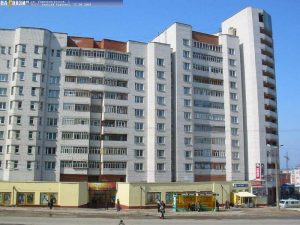 The claim for the requirement to vacate the dwelling must coincide with the procedural legislation.
The claim for the requirement to vacate the dwelling must coincide with the procedural legislation.
Before drawing up a claim, it is necessary to check that the laws referred to by the plaintiff are legally binding.
If you cannot do it yourself, then it is better to contact a specialist who has legal experience in such cases.
The statement of claim is sent to the location of the housing that is planned to be vacated. At the beginning of the application, the court to which it is submitted is indicated. After that, the data of the parties and the name of the claim are indicated.
You can not call the claim "about discharge from the apartment." The claim must be named in accordance with the provisions of the law. The court does not resolve the issue of deregistration upon registration of registration, this is handled by the relevant authorities, therefore it is necessary to call the claim "recognized as having lost the right to use housing."
Further, the narration of sufficient circumstances on which release of a premise is possible follows. It is desirable to produce a description in the chronology of the facts of life of the parties relating to the case. In the further part of the claim, provide legal confirmation of the claims, referring to the articles and provisions of the laws. After that, the requirements are clearly formulated.
At the end, the application is supplemented by applications with which the plaintiff confirms the claim.
Thus, the right to housing is the basic and main need of every citizen.
The law protects the right to housing by establishing a list of reasons that deprive a citizen of this right.
The principle of protecting the right to housing is the provision obliging the allocation of other housing to evicted persons.
Exceptional situations without housing are contained in.
Conclusion
From the foregoing, we can conclude that the legislative acts of the constituent entities of the Russian Federation, local provisions of state bodies cannot contain other norms that contradict the Constitution of the Russian Federation, housing legislation.
Their use is limited. If such provisions were applied, then this is an administrative offense. The legislation of the Russian Federation does not give other powers for the eviction of citizens with compulsion, except as provided by law. Article 25 of the Constitution guarantees the right to protect the inviolability of the home.



